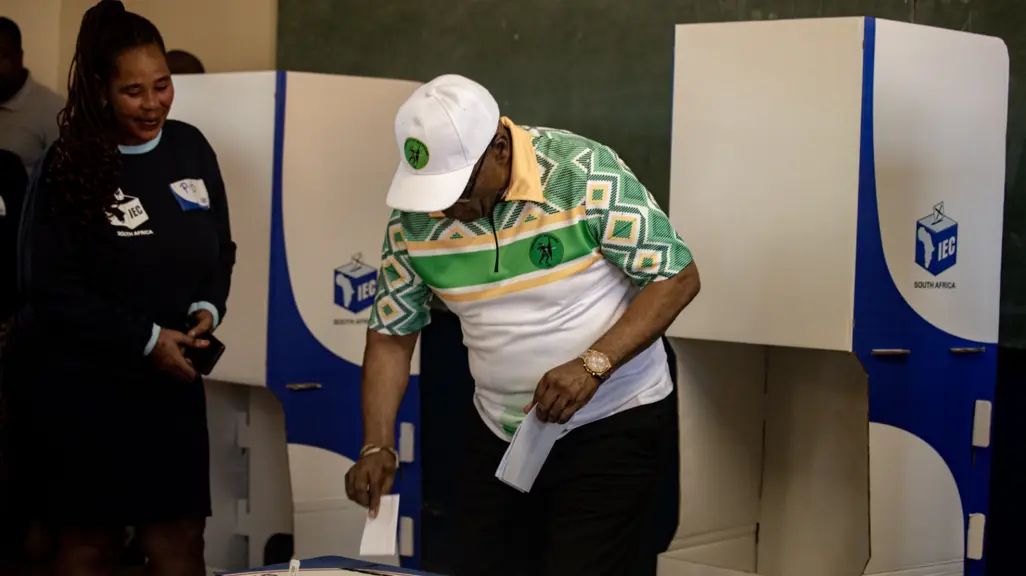Inside Politics Reporter
Voting has gotten off to a brisk start in KwaZulu-Natal, one of the most heavily contested provinces in the country, despite the late opening of polling stations in some parts of the province.
By 7 am 96% of the province’s 4 974 polling stations had opened on time, with delays reported in areas including Jozini, eThekwini, Mtubatuba, Ugu District, uMzumbe and uThukela by the Electoral Commission of South Africa (IEC).
The province has more than 5.7 million voters – the second largest in the country – and the outcome in KwaZulu-Natal will influence the outcome nationally.
Provincial electoral officer Ntombifuthi Masinga said that the bulk of the delays were caused by the late arrival of escort staff for transporting election materials.
In the Newcastle area, two polling stations in ward 4 were blocked by political parties, but both were able to open after an hour when police intervened, Masinga said.
While there had been reports of technology glitches in a number of voting districts, these would not delay the voting process, Masinga said.
“Voting is a manual process. If the hard copy of the voters roll and a list of preapproved Section 24A cases is at the voting station, voting can proceed unhindered,” Masinga said.
At the Glenwood Primary School in eThekwini ward 33, hundreds of residents joined the queue to vote, which snaked along the pavement outside the school premises.
Resident Ziba Hlengwa (66) a retiree said that he had first voted in 1994 and had been committed to voting again this year.
“I had no problem in voting,” Hlengwa said. “The queue was not too long and it was an easy process.”
Hlengwa said that he was voting for a different party to his traditional choice – which he had supported since he first voted in 1994 – for the first time.
“I am voting because I want change,” he said. “It was not a difficult decision. I have been able to see for some time now that the other party is not right.”
Hlengwa said he was confident that the election would deliver a change of government – along with change in living conditions in the country.
“I think that it will happen,” Hlengwa said. “There are many people who are not happy with the way things are in the country right now.
Marike and Timo Hansen (both 47) turned out to vote for their party of choice, mainly because of issues of crime, corruption and services.
“I am voting for better service and a better run country,” Timo said.
Marike hoped that the election would result in “more places being run by more competent and less corrupt officials.”
Civil engineer Dumisane Dube (42) and his wife Londi turned out to vote “for the future of our children”.
They believe that their vote can change the circumstances under which their six children will grow up. Both are voting for a new party for the first time.
“Whatever we do is for their benefit and their future,” Dumisane said.
“We can see that the leading party we have now is no longer doing things that will help create a good future, so we have decided to change how we vote.”
Masinga urged voters who experienced delays to remain in the queue as election officials would ensure that those who were still waiting to cast their vote at 9pm when they closed would not be turned away.
INSIDE POLITICS

